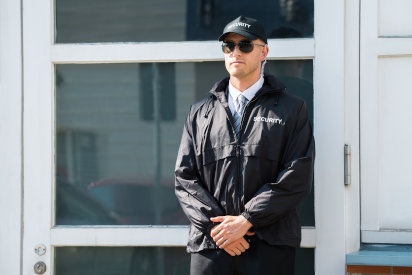 Before a person can work in the security industry, he or she must first obtain a security licence. Licence applicants must undergo extensive training and declare any past criminal history.
Before a person can work in the security industry, he or she must first obtain a security licence. Licence applicants must undergo extensive training and declare any past criminal history.
There are many grounds on which a licence can be refused, or revoked/suspended after it has been obtained.
Refusal or revocation of a security licence
A security licence can be suspended, refused or revoked for a variety of reasons set out under the Security Industry Act 1997. These include where the applicant, or license holder, is not a fit and proper person, or if the Commissioner of Police believes that it would be against the public interest for the applicant to hold a licence.
The commissioner must also revoke or refuse to grant a licence if the applicant has been convicted of a “prescribed offence”. Prescribed offences include:
- Offences relating to firearms or weapons.
- Offences relating to prohibited drugs.
- Offences involving assault.
- Offences relating to riot and affray.
- Offences relating to terrorism and criminal groups.
- Offences involving fraud, dishonesty, stealing or robbery.
- Offences involving stalking or intimidation.
The Security Licensing & Enforcement Directorate (SLED) is responsible for carefully assessing each security licence application on behalf of the Commissioner of Police.
Defining “fit and proper person”
While there is no set definition of a fit and proper person, it will often include a consideration of the applicant’s:
- Character and reputation.
- Knowledge of, and ability to perform, their duties and responsibilities under the licence.
- Moral integrity and honesty.
Defining “public interest”
The public interest consideration prioritises the interests of the community over the applicant. Issues beyond the character of the applicant are considered, including:
- Public protection concerns.
- Public safety.
- Public confidence in the administration of the licensing system.
Appealing a refused or revoked security licence
If your security licence has been refused or revoked, you can seek a review of the decision. You have 28 days to make a written application for internal review, which will involve another SLED representative reviewing the decision to revoke or refuse your licence. The decision will either be confirmed, overturned or varied.
If the internal review is unsuccessful, an application can be made to the NSW Civil & Administrative Tribunal (NCAT) for administrative review. If you take your matter before NCAT, the Tribunal will review the facts of your matter and determine whether SLED made the correct and preferable decision.
Recent changes to NSW security licence eligibility
From 1 June 2023, there will be changes to security licence eligibility in NSW. Security licence applicants who are not an Australian citizen or a permanent resident must hold either:
- A visa sponsored by a Master security licence holder, or
- A visa for a skilled occupation that corresponds to the activities authorised by the proposed licence.
If you hold a current security licence but do not meet the new visa requirements, you may retain and renew your licence. However, you will not be eligible to reapply for a licence if your current licence expires, or it is surrendered, revoked, or ceases to be in force.
Additional persons prohibited from applying for or being granted a licence
Anyone who is a registrable person under the Child Protection (Offenders Registration) Act 2000 will be ineligible to hold a security licence. If your current security licence is affected by this it will not be revoked, however you will not be able to renew your security licence.
Additional persons ineligible to carry on prescribed work
Master licence conditions have been increased and expanded. Under the changes, Master licensees must not permit an ineligible person to carry on prescribed work, and it will be an offence for an ineligible person to carry on prescribed work.

